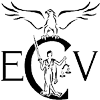Das AMNOG im Fokus betriebswirtschaftlicher Rationalität
Eine empirische Untersuchung
Pharma-Markt
Abstract
The German Law on the Reorganization of the Pharmaceutical Market in the Focus of Managerial Economics / An empirical study
Aim: To highlight the reaction of pharma companies to the “AMNOG” (German Law on the Reorganization of the Pharmaceutical Market), based on empirical research. Key objectives of the study are: the changing organizational structure of pharma companies, success factors in negotiations with externals, for improving the process and implications for the German market.
Methodology: Qualitative interviews with members of the Market Access or Health Policy departments of 15 German pharma companies. The survey was carried out partly via standardized phone interviews (lasting approximately 60 minutes) and took place between March and July of 2013.
Results: Overall, the AMNOG represents a massive intervention in the regulative environment of pharma companies. As a consequence, company adjustment processes are needed. All companies experienced rising overheads. In the majority of cases, this was assumed using existing staff members, rather than through the hiring of additional staff. Service companies were usually consulted to create dossiers. The importance of the AMNOG is highlighted through the involvement of national executive boards and the process is not seen as fair by most companies, with all companies seeing the potential for improvement. The scepticism regarding the arbitration board supports this assessment. The study shows that the AMNOG may lead to the delay in launch dates and that the German market may see its relevancy decrease.
Conclusion: The findings point out the possible dangers of the AMNOG. As such, the early benefits assessment and price negotiation processes should be reconsidered and adapted continuously. This study presents the first round of suggestions for improvement.
 | Dr. Desdemona Möller studierte Gesundheitsökonomie an der Universität zu Köln mit den Schwerpunkten Management im Gesundheitswesen und Evidence Based Medicine. Seit 2006 ist sie wissenschaftliche Mitarbeiterin am Seminar für Allgemeine BWL und Management im Gesundheitswesen der Universität zu Köln. Im Jahr 2010 schloss sie unter der Betreuung von Herrn Prof. Dr. Ludwig Kuntz ihre Promotion ab. Derzeit ist sie als Akademische Rätin mit dem Forschungsschwerpunkt Pharma am genannten Seminar tätig. |
 | Prof. Dr. Ludwig Kuntz forscht |
Schließen Sie hier ein Abonnement ab und profitieren Sie von den vielseitigen Nutzungsmöglichkeiten.




